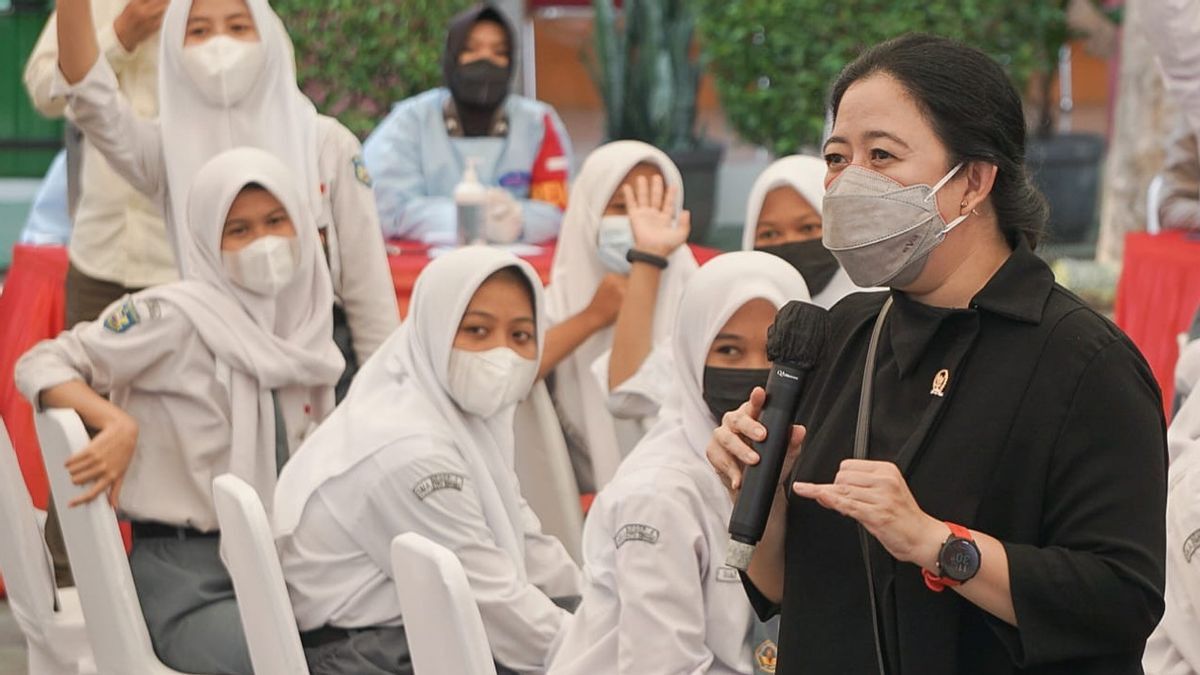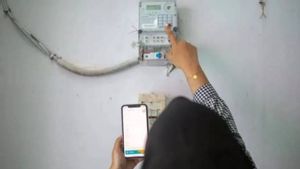JAKARTA - Chairperson of the Indonesian House of Representatives, Puan Maharani, asked the government to intensify socialization and education about Monkeypox, even though this disease has not yet been found in the country.
This appeal follows the designation of monkeypox as a global emergency or Public Health Emergency of International Concern (PHEIC) of the World Health Organization (WHO).
"Monkeypox has spread in dozens of countries based on the WHO report. Learning from our experience in dealing with COVID-19, Indonesia must be prepared for monkeypox or monkeypox," said Puan to reporters, Monday, July 25.
Previously, WHO said there had been around 16,000 confirmed cases in 75 countries, although most of the cases came from Europe with 5 deaths occurring in Africa. Therefore, Puan encourages the government to anticipate the entry of the disease caused by the Monkeypox virus (MPXV).
"Massive socialization about this disease, including increasing public education about monkeypox to increase awareness of monkeypox," said Puan.
In addition, Puan also asked the government to carry out early detection after Monkeypox was declared a public health emergency of international concern. He also praised the government's steps to prepare two laboratories as an effort to detect monkeypox early.
“Make sure health facilities are ready to deal with this disease. Medical personnel also need to be reminded to be sensitive to the potential for Monkeypox patients to attack residents," said Puan.
The former Coordinating Minister for Human Development and Culture assessed that the government's preparedness to deal with Monkey Smallpox could reduce public unrest. Puan emphasized that the DPR will continue to oversee the Government's preparations in anticipating Monkey Smallpox.
"DPR through Commission IX in particular, will participate in ensuring that the Government is ready if Monkey Smallpox enters the country and what scenario will be carried out against the worst possibility of this disease," said Puan.
Furthermore, Puan explained, the Monkeypox virus can be transmitted through close contact with other infected people, infected animals, or even those contaminated with the virus. In human-to-human transmission, Monkeypox is spread from one person to another through close physical contact.
"To avoid transmission, we must be more aware of implementing a healthy lifestyle. This includes not using personal items with other people, such as towels and cutlery," said Puan.
Puan suggested, if you have a fever along with a severe headache, swelling of the limbs, back pain, muscle aches, lethargy, rash and lethargy, the public should immediately visit a health facility. He warned, Monkeypox can also be transmitted from pregnant women to their fetuses, or from parents to children during pregnancy or after birth through skin-to-skin contact.
"This is the importance of the Maternal and Child Welfare Bill (KIA) to ensure that health insurance for mothers and children is carried out in an integrated manner," said Puan.
Puan also encouraged the government to continue to develop cooperation with friendly countries as a precautionary measure.
"Especially in terms of providing the Monkeypox vaccine, because WHO has recommended that countries implement a coordinated response, including accelerating research on vaccines, therapies and other tools," said Puan.
The English, Chinese, Japanese, Arabic, and French versions are automatically generated by the AI. So there may still be inaccuracies in translating, please always see Indonesian as our main language. (system supported by DigitalSiber.id)













